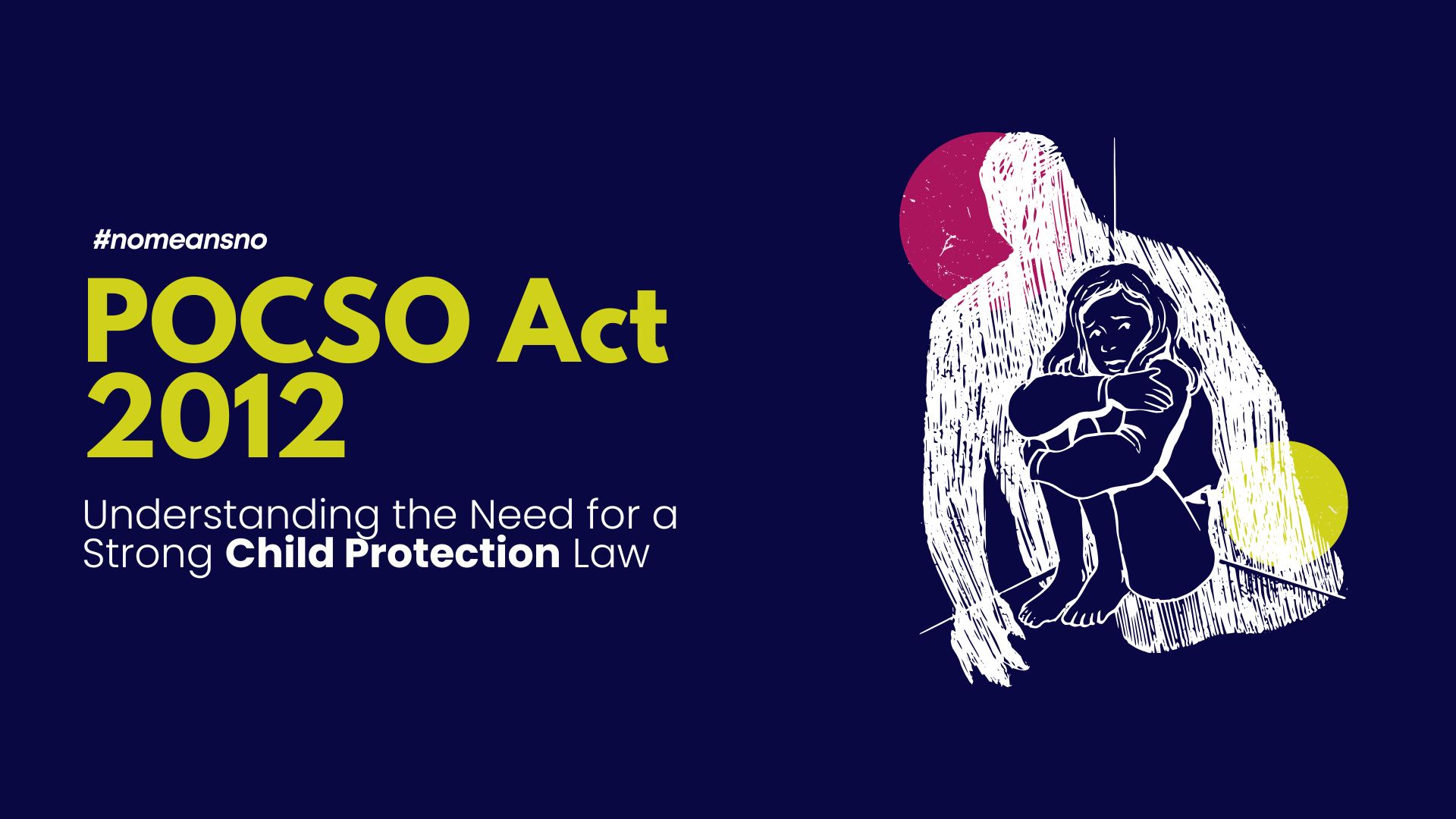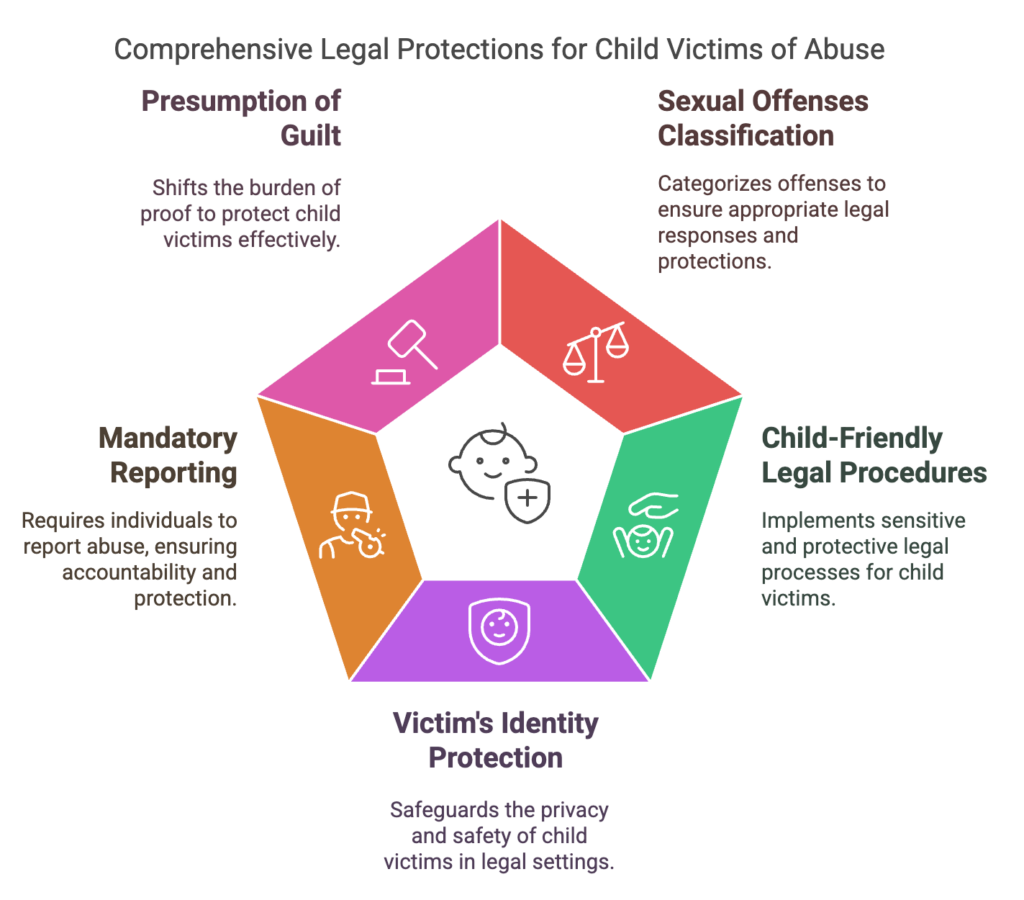Understanding the Need for a Strong Child Protection Law
Child sexual abuse in India is a harsh reality that affects millions of children. With a rapidly growing population and increasing cases of child exploitation, there was an urgent need for a dedicated child protection law. While the Indian Penal Code (IPC) had certain provisions, it lacked a structured legal framework specific to child abuse laws in India.
To bridge this gap, the Protection of Children from Sexual Offences (POCSO) Act, 2012 was introduced. This landmark legislation aims to safeguard children from sexual assault, harassment, and pornography while ensuring a child-friendly legal process.
Let’s explore why the POCSO Act in India was necessary, its key provisions, and its impact on child protection.
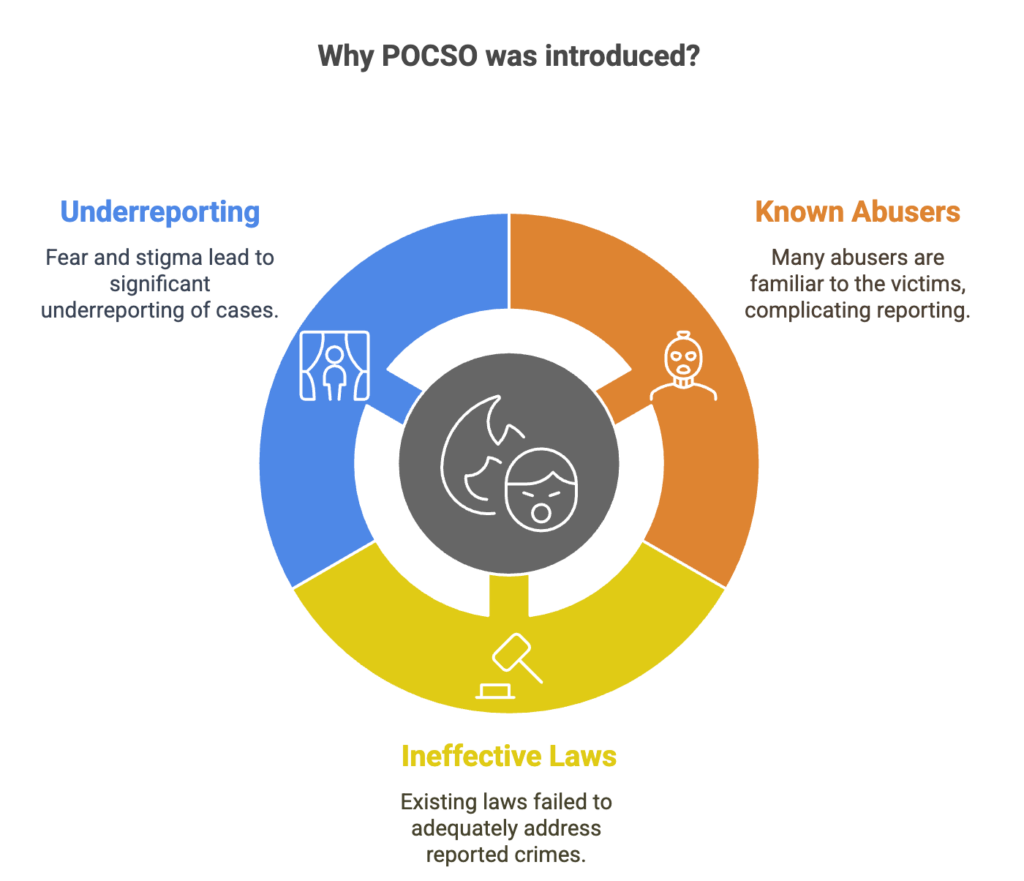
The Growing Need for the POCSO Act
Rising Cases of Child Sexual Abuse
Child sexual abuse in India is often underreported due to fear, stigma, and lack of awareness. However, studies have highlighted alarming statistics:
- According to the 2007 National Study on Child Abuse by the Ministry of Women and Child Development, over 53% of children in India have experienced some form of sexual abuse.
- Shockingly, 50% of abusers were known to the victims, making it difficult for children to report child abuse cases.
- Crimes like rape, molestation, and harassment were frequently reported but not effectively addressed under existing laws.
Limitations of Existing Laws
Before POCSO, cases of child sexual abuse were handled under general IPC provisions, which were inadequate:
- Section 354 (Outraging Modesty of a Woman) – Did not cover male child victims.
- Section 375 (Rape) – Had a narrow definition that excluded several forms of abuse.
- Section 377 (Unnatural Offenses) – Focused on same-sex relationships rather than child protection laws.
- Immoral Traffic Prevention Act (ITPA), 1956 – Addressed human trafficking but was insufficient to deal with child-specific sexual offenses.
Objectives of the POCSO Act
To address these gaps in child protection laws, the Government of India enacted the POCSO Act on June 19, 2012. Its primary objectives include:
- Comprehensive Protection: Covers all types of sexual offenses, including penetrative and non-penetrative assault, harassment, and pornography.
- Gender-Neutral Approach: Unlike the IPC, which primarily protected female victims, POCSO extends protection to all children under 18, including boys and transgender individuals.
- Child-Friendly Legal Procedures: Ensures that children can testify without intimidation and in a safe environment.
- Strict Punishments: Introduces severe penalties, including life imprisonment and the death penalty in extreme cases.
- Mandatory Reporting of Child Abuse: Makes it compulsory for individuals and institutions to report suspected child abuse.
- Speedy Justice: Establishes Special Courts for quick resolution of child abuse cases in India.
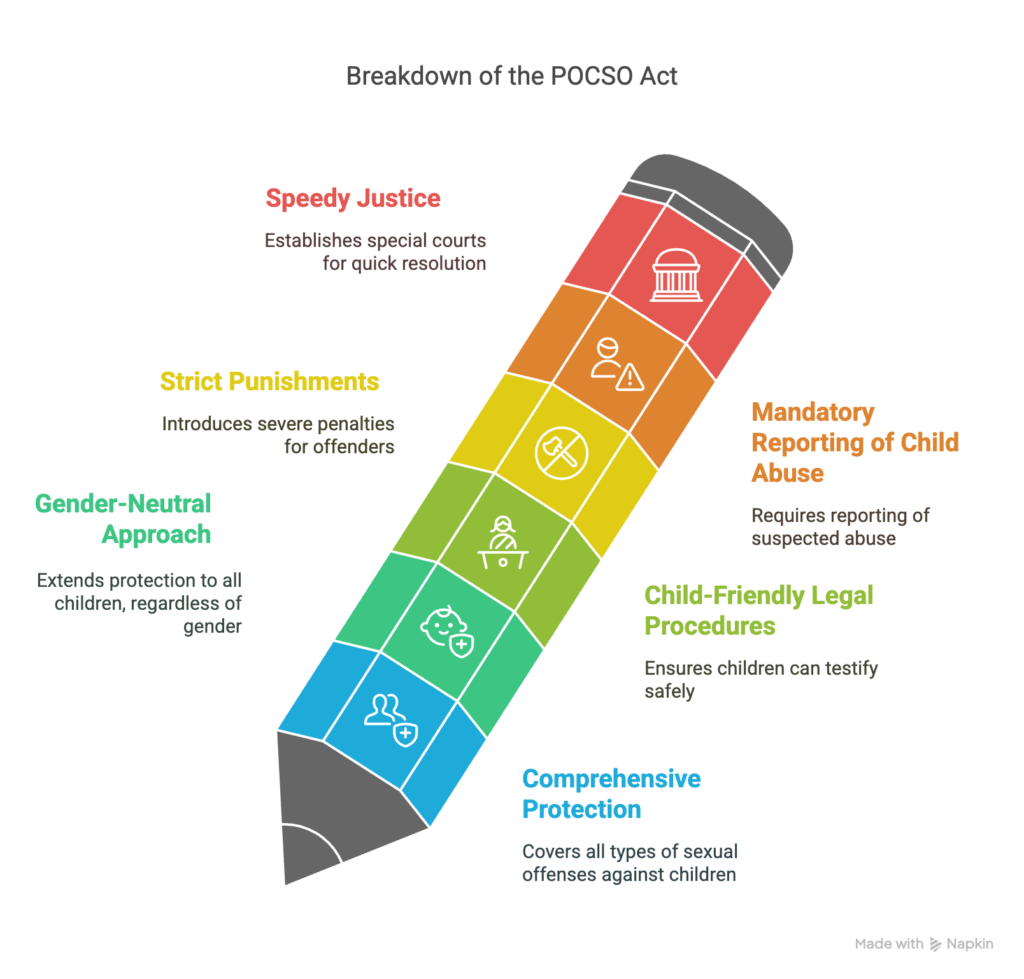
Key Features of the POCSO Act 2012
The POCSO Act introduced groundbreaking provisions to ensure effective protection and justice for child victims.
1. Broad Definition of Sexual Offenses
The Act classifies offenses against children into four major categories:
- Penetrative Sexual Assault (Section 3): Includes rape, oral sex, insertion of objects, etc.
- Aggravated Penetrative Sexual Assault (Section 5): Covers abuse by authority figures (parents, teachers, police, etc.).
- Sexual Assault (Section 7): Includes non-penetrative acts like groping and touching with sexual intent.
- Sexual Harassment (Section 11): Covers stalking, exposing children to pornography, making obscene remarks, etc.
2. Child-Friendly Legal Procedures
- Special Courts conduct trials in-camera to protect the child’s identity.
- Direct cross-examination of a child by the accused is prohibited.
- A woman police officer should record the child’s statement in a safe environment.
3. Protection of Victim’s Identity
- The child’s identity must not be disclosed in media reports.
- Statements should be recorded in a child-sensitive manner to minimize trauma.
4. Mandatory Reporting of Child Abuse
- Parents, doctors, teachers, and individuals must report child abuse.
- Failure to report a case can lead to punishment under the Act.
5. Presumption of Guilt in Favor of the Child
- The burden of proof lies on the accused, making it easier for victims to seek justice.
- The child’s testimony is treated as reliable evidence, reducing unnecessary scrutiny.
Impact of the POCSO Act 2012 in India
Since its implementation, the POCSO Act has strengthened child protection laws and created greater awarenessabout sexual abuse in India.
1. Increase in Reported Cases
- More survivors are coming forward due to mandatory reporting provisions.
- Awareness campaigns have empowered children and families to break the silence.
2. Stronger Legal Action Against Offenders
- Convicted offenders face life imprisonment or capital punishment in extreme cases.
- The law has acted as a deterrent, reducing impunity for child abusers.
3. Emphasis on Victim Rehabilitation
- Courts mandate psychological and legal support for survivors.
- Victims receive compensation for rehabilitation and well-being.
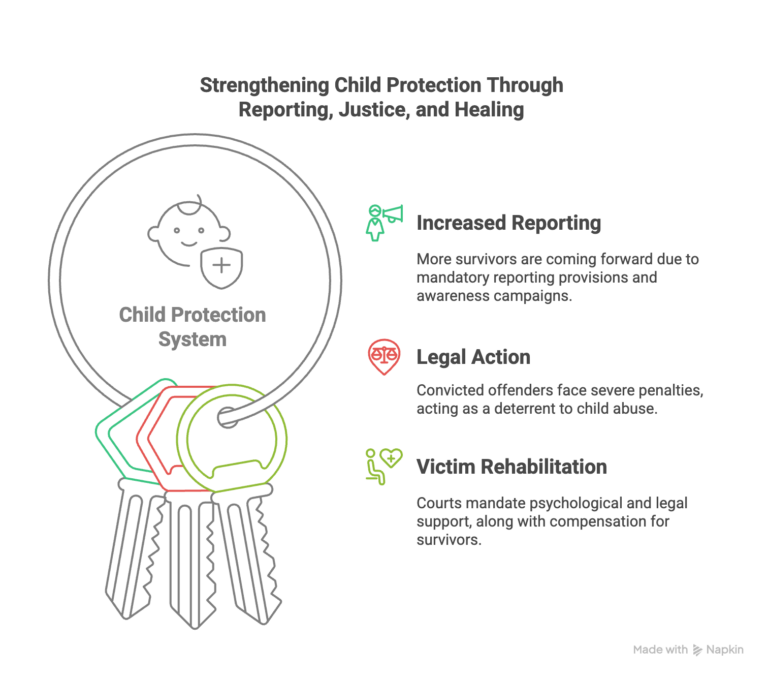
Challenges and Criticism of the POCSO Act
Despite its successes, POCSO faces certain challenges:
- Delayed Justice: Special courts take longer than expected, prolonging victims’ trauma.
- Misuse of the Act: Cases of false allegations for personal revenge have been reported.
- Lack of Trained Professionals: Police and judiciary need better training to handle child abuse cases sensitively.
- Low Conviction Rates: Many cases fail due to poor evidence collection and societal pressure.
- Digital Crimes Not Fully Addressed: Cyber grooming and online child abuse need stronger legal provisions.
A Step Forward in Child Protection The POCSO Act, 2012, is a crucial step toward ensuring the safety and dignity of children in India. While challenges remain, its implementation has empowered survivors, increased awareness, and strengthened legal actions against offenders. To make a real impact, continuous training, public awareness, and stricter enforcement are necessary. Protecting children is a collective responsibility, and laws like POCSO serve as a foundation for a safer future.
#NoMeansNo

